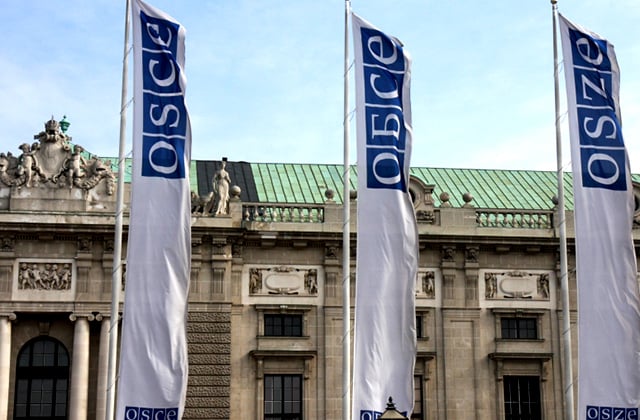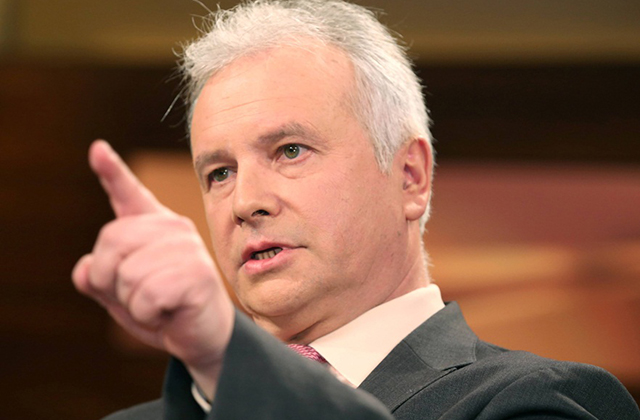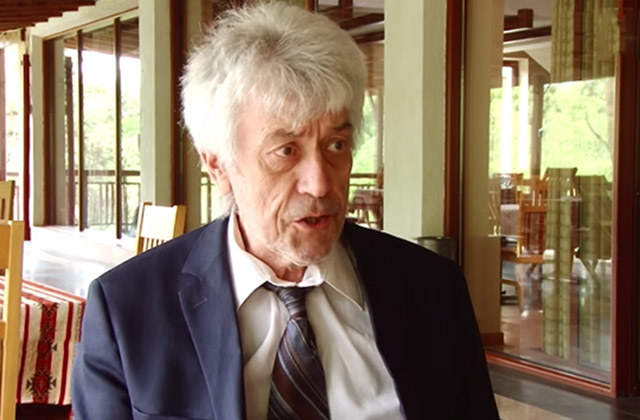Why does Azerbaijan prevent extension of the mandate of OSCE Yerevan Office?

Azerbaijan attempts to prevent extension of OSCE Yerevan Office mandate. Although in the beginning of the year Christine Muttonen (Austria), OSCE PA President, urged to immediately come to an agreement in some countries, including Armenia, on extension of OSCE mandate, the issue won’t settle.
On January 27 the meeting of the OSCE Permanent Council was held at the OSCE Headquarters, during which in his remarks Clemens Koja, Chairman of the OSCE Permanent Council and Permanent Representative of Austria, outlined that throughout the discussions on the extension of mandate of the OSCE Yerevan Office one participating state, particularly meaning Azerbaijan, expressed a concern that the humanitarian demining programme of the Office is not in line with its mandate.
According to RA MFA it was recalled that the Special Representative of the OSCE Chairmanship made an assessment of this issue on spot in the framework of his visit to Yerevan and concluded that the above-mentioned programme does not fall outside the mandate of the Office. The Chairman of the OSCE Permanent Council emphasized that both the previous German Chairmanship, and current Austrian Chairmanship share this assessment. The Chairman of the OSCE Permanent Council expressed his regret that even under these circumstances the decision on the extension of the mandate of Yerevan Office is delayed. Moreover, he outlined that this threatens to have a detrimental impact on the whole activity of the OSCE. As a way out of this situation the OSCE Chairmanship requested the Yerevan Office to abstain from the implementation of the humanitarian demining programme. He also emphasized that all the other programmes of the Yerevan Office should remain untouched.
In contrast with 56 participating states Azerbaijan objected the extension of the mandate of the OSCE Yerevan Office by finding itself in isolation. In their statements delegations of a number of OSCE participating states, including Russia, the United States, European Union on behalf of its member states, Canada, Switzerland, supported the activities of the OSCE Yerevan Office. The deadline of termination of mandate of OSCE field mission has been terminated on December 31, 2016 in Armenia, Tajikistan, Kyrgyzstan and Uzbekistan.
The Armenian side gave a clear explanation to this Azerbaijani posture. Earlier Shavarsh Kocharyan, Deputy Foreign Minister of Armenia, told reporters, “Azerbaijan ceased the OSCE Baku Office work and as if that were not enough, it now tries to halt the OSCE Yerevan Office operation. I consider, European organization, in particular, the OSCE, should think over it. They quite easily swallowed the circumstance that Azerbaijan closed the office, reasoning that it’s the sovereign right of every state. Ok, it’s Azerbaijan’s right. But now it attempts to block the office functioning in Armenia. The point is, that all decisions in OSCE are made through a consensus, which relates to the budget. It appears Azerbaijan has chosen an explicit method of blackmailing, threatening to block the organization’s budget unless it gets whatever it wants. This has been the second case following the agreement on establishing investigation mechanisms, when Azerbaijan disrupted the process, recalling the same threats to block the budget adoption,” he said.
Alexander Rahr, member of Russian Valdai Club, German political scientist, told “168 Hours” that some components of the foreign policy pursued by NK conflict parties should be perceived out of their positions on NK conflict settlement. German analyst reminded that the existent status quo on the conflict zone is unacceptable for Azerbaijan, which basically includes relative peace on the contact line and on the border, it’s a rather beneficial condition for Armenia regarding territories.

“Such state of affairs understandably satisfies Armenia, as either there should be a settlement, which supposes certain concession, or war, implications of which are unprecedented. What does Azerbaijan repeat throughout recent years? “Status quo is no more acceptable”. OSCE, without a mandate of interfering with the conflict urging settlement to the sides, attempts to establish stability and peace on the border, on the contact line and these efforts by OSCE, judging from the statements by Azerbaijani officials, are purposeless, due to which Azerbaijan doesn’t consider it proper to cooperate with OSCE, attempting to prevent OSCE-Armenia cooperation as well. However, I believe that cooperation doesn’t at all depend on Azerbaijan’s will on how productive efforts by OSCE MG will be in NK conflict settlement,” Alexander Rahr said.
He believes that there is another reason as well, for which Azerbaijan wants extension of OSCE Yerevan Office mandate. According to Rahr, Azerbaijan, like both in Karabkah conflict framework and in other fields attempts to compete with its opponent Armenia, leaving fields in the shadow, in which Armenia hold top positions.
“Thus, Azerbaijan wouldn’t like a state of affairs, where Armenia productively cooperates with OSCE, and Azerbaijan—doesn’t. Azerbaijan intends to equal Armenia-OSCE relations to the level of Azerbaijan-OSCE relations, as it has fears that due to those relations Armenia is gaining a preferential status from OSCE MG,” Alexaner Rahr said.
German analyst Uwe Halbach told “168 Hours” that Azerbaijan perceives functioning of that office in Yerevan as a privilege for Armenia in NK conflict settlement process. “Azerbaijan considers OSCE MG serves interests of Armenia, attempting to maintain the status quo on the conflict zone. However, MG has the issue of moving forward the negotiations, during which the settlement should mature, when the sides are far from the settlement, MG sets the issue to maintain the status quo. The situation is complicated, perceptions and conclusions of each country are different,” he said.

However, Halbach attached attention to another circumstance as well. “For stability of Armenia-OSCE relations it’s necessary that Armenia more deeply analyzed its steps during the very process of decision-making, not giving way to worsening. As a result of Armenia-Russia relations there were cases, when Armenia put its authority under threat in OSCE. I think this is also a circumstance worth attention. There is a threat that this and Azerbaijan’s efforts to this end, may give certain results.
There is no need to point all the arrows at Azerbaijan, of course, in this case Azerbaijan attempts to fail the postponement process, however, there are tendencies, which leave Armenia beyond the productive work of this organization. It refers to a few cast votes of Armenia throughout recent years, which were unexpected for OSCE,” German analyst Halbach said.
The latter, however, stressed that currently Armenia-OSCE relations may be assessed as positive. “It isn’t beneficial for Armenia not to lose OSCE MG format, as it’s being maintained due to the efforts and desire of Armenia,” the analyst said.
By Araks Martirosyan

























